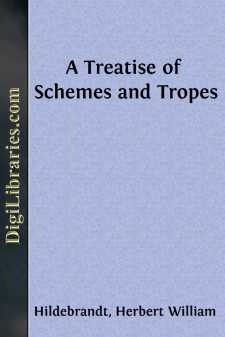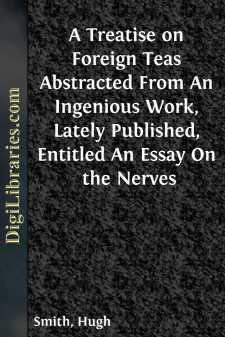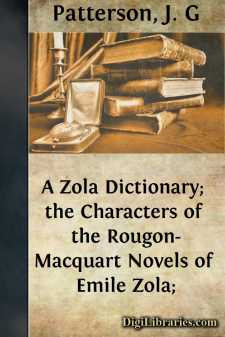Non-Classifiable
- Non-Classifiable 1768
Non-Classifiable Books
Sort by:
by:
George Berkeley
PREFACE What I here make public has, after a long and scrupulous inquiry, seemed to me evidently true and not unuseful to be known--particularly to those who are tainted with Scepticism, or want a demonstration of the existence and immateriality of God, or the natural immortality of the soul. Whether it be so or no I am content the reader should impartially examine; since I do not think myself any...
more...
by:
David Hume
INTRODUCTION. Nothing is more usual and more natural for those, who pretend to discover anything new to the world in philosophy and the sciences, than to insinuate the praises of their own systems, by decrying all those, which have been advanced before them. And indeed were they content with lamenting that ignorance, which we still lie under in the most important questions, that can come before the...
more...
INTRODUCTION Richard Sherry’s A Treatise of Schemes and Tropes (1550), a familiar work of the Renaissance, is primarily thought of as a sixteenth-century English textbook on the figures. Yet it is also a mirror of one variation of rhetoric which came to be called the rhetoric of style. As a representative of this stylistic school, it offers little that is new to the third part of classical rhetoric....
more...
by:
Hugh Smith
INTRODUCTION. As two of the four meals that form our daily subsistence are chiefly composed of tea, an enquiry into what kind is the most salutary must be as necessary as it may prove interesting and beneficial; for, on the choice of proper or improper tea must greatly depend the health or disease of the public in general. To this may be attributed the constitution being either preserved from that...
more...
SIMPLE COUNTERPOINT LESSON I Counterpoint is the art of combining two or more melodies of equal melodic individuality. In simple counterpoint all parts must remain in the same relative position to one another. The Cantus Firmus is a given melodic phrase that is to receive contrapuntal treatment, that is, one or more parts are to be added above or below it. The Counterpoint is any part other than the...
more...
CHAPTER I. To produce a good balance staff requires more skill than to produce any other turned portion of a watch, and your success will depend not alone on your knowledge of its proper shape and measurements, nor the tools at your command, but rather upon your skill with the graver and your success in hardening and tempering. There are many points worthy of consideration in the making of a balance...
more...
HEREas manye histories of olde & auncient antiquitie, and also al godly & Christiã writers most playnely consêt together, and agree in this, that dignitie, riches, kinred, worldly pompe, and renoume, doo neither make men better, ne yet happiar, contrarie too the blynde & fonde iudgement of the most part of menne: but by the power and strength of the mynde, that is, learnyng, wysedome,and...
more...
A WOMAN'S PART IN A REVOLUTION I hope I may be able to tell the truth always, and to see it aright according to the eyes which God Almighty gives me.—Thackeray. I. Totsey the terrier lay blinking in the hot African sun, while Cecilia Rhodes, the house kitten, languished in a cigar box wrapped about with twine to represent bars of iron. Above her meek face was a large label marked 'African...
more...
by:
Anonymous
PREFACE THE best preface to this journal written by a young girl belonging to the upper middle class is a letter by Sigmund Freud dated April 27, 1915, a letter wherein the distinguished Viennese psychologist testifies to the permanent value of the document: "This diary is a gem. Never before, I believe, has anything been written enabling us to see so clearly into the soul of a young girl,...
more...
by:
J. G Patterson
INTRODUCTION Emile Zola was born at Paris on 2nd April, 1840. His father, Francois Zola, was a man whose career up to that time had not been a success, though this was not due to any lack of energy or ability. Zola pere was of mixed nationality, his father being an Italian and his mother a Greek, and it is not unlikely that his unrest and want of concentration were due to the accident of his parentage....
more...











